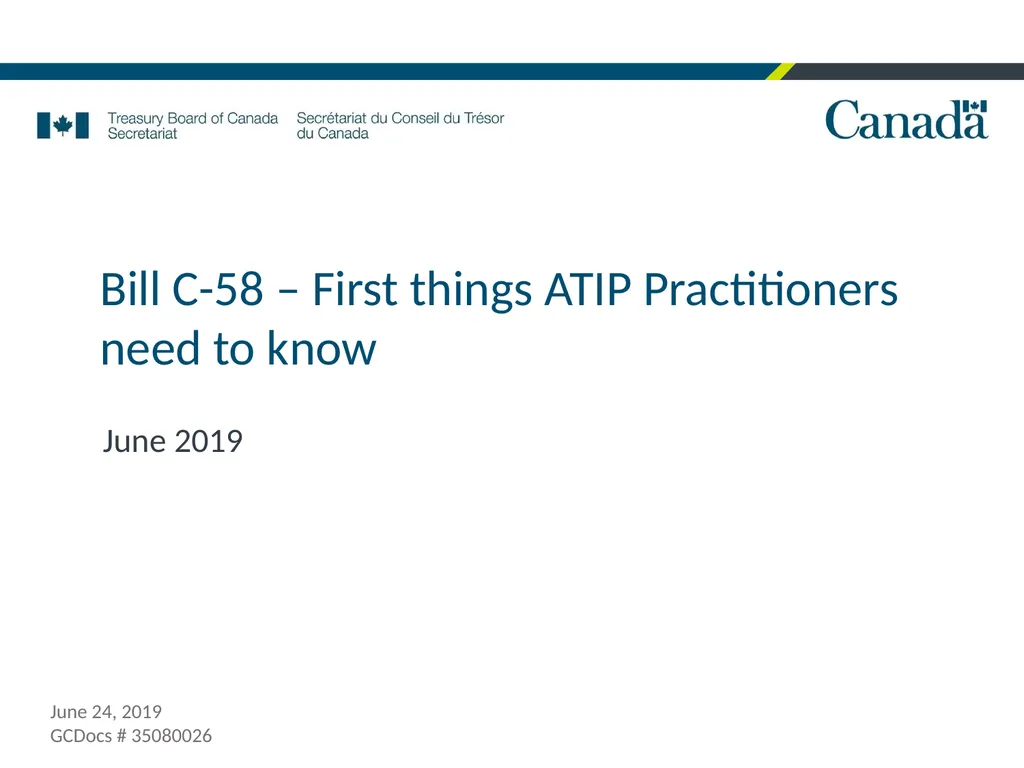
Author : tatiana-dople | Published Date : 2025-11-08
Description: Bill C-58 First things ATIP Practitioners need to know June 2019 June 24, 2019 GCDocs 35080026 Purpose Outline key changes that came into effect upon Royal Assent of Bill C-58 on June 21, 2019 2 PROACTIVE PUBLICATION REQUIREMENTS GrantsDownload Presentation The PPT/PDF document "" is the property of its rightful owner. Permission is granted to download and print the materials on this website for personal, non-commercial use only, and to display it on your personal computer provided you do not modify the materials and that you retain all copyright notices contained in the materials. By downloading content from our website, you accept the terms of this agreement.
Here is the link to download the presentation.
"Bill C-58 – First things ATIP Practitioners need"The content belongs to its owner. You may download and print it for personal use, without modification, and keep all copyright notices. By downloading, you agree to these terms.










